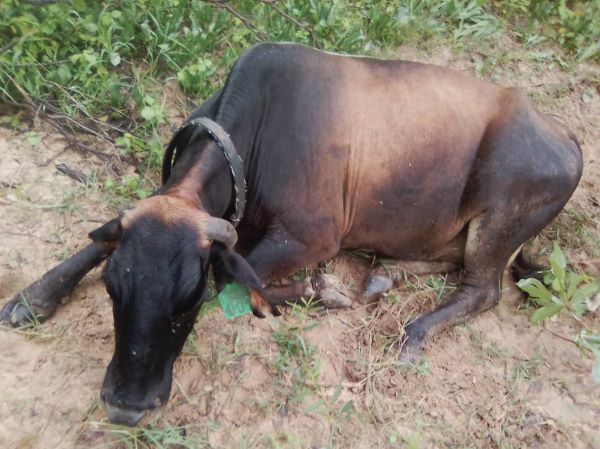
The Federal Ministry of Agriculture and Rural Development (FMARD) has announced the confirmation of the first anthrax case in Niger State, Nigeria.
On July 14, 2023, the Office of the Chief Veterinary Officer of Nigeria received a report of suspected anthrax symptoms in animals on a farm in Suleja, Niger State.
The farm, located at Gajiri, along the Abuja-Kaduna Expressway in Suleja LGA, Niger, is a multi-specie animal farm housing cattle, sheep and goats. Some of the animals exhibited symptoms such as the oozing of blood from their body openings, including the anus, nose, eyes and ears. A rapid response team, comprising Federal and state One Health professional team, conducted preliminary investigations and collected samples from the sick animals. Subsequent laboratory tests by the National Veterinary Research Institute confirmed the diagnosis of anthrax, marking the first recorded case in Nigeria in recent years, following an outbreak in northern Ghana a few weeks ago. Science Nigeria understands that all affected animals have died.
Anthrax is caused by the bacterium Bacillus anthracis, primarily affecting cattle, sheep, and goats. However, it can also infect humans who come into direct contact with infected animals or contaminated animal products such as meat, wool, or hides.
The Federal Government, in collaboration with the Niger State government, has taken proactive measures to control and contain the outbreak. These measures include quarantine of the affected farm, deployment of anthrax spore vaccines to affected and adjoining farms for in-contact animal vaccination, and educating farm workers on symptoms and preventive measures.
Plans are underway to conduct nationwide vaccination of cattle, sheep, and goats against anthrax. Surveillance of anthrax will be heightened in livestock farms, markets, and abattoirs, and public awareness campaigns on anthrax will be intensified.
The Federal Ministry of Agriculture and Rural Development has urged all livestock owners to remain vigilant and promptly report any suspicious illnesses or deaths in their animals. They should avoid contact with sick or dead animals and their products and exercise caution when buying animals from certain bordering states and countries.
People are advised not to slaughter sick animals as it can expose anthrax spores that may be inhaled. Products from sick or dead animals should not be consumed and hunters should avoid picking sick or dead animals from the bush for human consumption.
The ministry recommended vaccination as the most effective preventive measure against anthrax in livestock. Personal protective equipment should be used when handling sick animals and regular monitoring of livestock for signs of sickness is crucial.
Cases of animals bleeding from body openings should be immediately reported to veterinary authorities. Good hygiene practices on the farm, regular cleaning, disinfection of animal housing and equipment, and biosecurity measures are essential to prevent the spread of anthrax.
Sick animals should be isolated and strict quarantine measures implemented to prevent further spread of the disease. Early detection and reporting of suspected anthrax cases in animals or humans are crucial for effective control measures.
The Chief Veterinary Officer of Nigeria, Dr. Columba Vakuru assured Nigerians that all necessary steps will be taken to contain the disease. “The Federal Ministry of Agriculture and Rural Development,” he said “will provide updates on the situation as it unfolds”.


